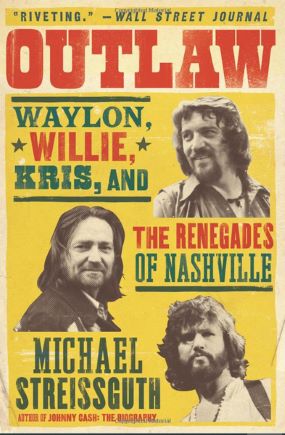The year was 1986, and I had just finished the front 9 at Holmes Park Golf Club. Fletcher and I were headed towards the clubhouse for a quick snack, as time was of the essence because we had tickets to the Hall and Oates concert that night at the Bob Devaney Sports Center. As we entered the clubhouse, a fellow golfer we knew, acting somewhat excited, told us that “Kris Kristofferson is in the can”. Both Fletcher and I, simultaneously, replied with “Bull”, but waited patiently and sure enough in about 3 minutes, Kristofferson himself emerged from the can. He sashayed outside and picked up his golf bag, which seemed to be larger than he was, but he had no problem carrying it. We said no words to Kristofferson that day, who was in Lincoln at the time filming the TV mini-series called Amerika (about a Soviet takeover of the U.S.), but certainly now regret that decision to remain silent. If we knew then what we know now, undoubtedly it would have went down quite differently on that day.
Dad was a diehard country music fan, especially outlaw country, and even though the year before the brush with Kristofferson he hauled us against our will to the County Music Hall of Fame in Nashville, he never (as far as I recall) spoke about Kristofferson or his songwriting prowess. Dad was all Johnny Cash, George Jones, and some Waylon. He didn’t like Willie Nelson because of his ponytails, although after Dad died I found Willie’s Red Headed Stranger in his album collection, and I’ve enjoyed it many times. I found no Kristofferson, but did find copious amounts of Merle, Waylon, and Tammy (in addition to those previously mentioned).
Today’s write-up is about the book Outlaw: Waylon, Willie, Kris, and the Renegades of Nashville, by Michael Streissguth. Outlaw describes the history of these three country music musicians (including Cash, the members of the super group The Highwaymen), with Nashville as the central focal point. In 1986, I had no idea of the depth of Kristofferson’s writing aptitude, but now have come to realize and acknowledge it with the utmost of respect. Kristofferson’s catalog includes Bobby McGee, Help Me Make it Through the Night, The Taker, Sunday Morning Coming Down, Loving Her Was Easier, For the Good Times, Jesus Was a Capricorn, and many others. If I had a do-over of that day in 1986, I would have thanked Kris and expressed my appreciation for his work. Outlaw also describes the logistics of the rise and intersection of Willie and Waylon’s work together, in and out between Nashville and Texas, and the rise of The Johnny Cash Show. The book also describes the battles faced by the musicians, mostly the addictions of Waylon and Cash (pills), and Kristofferson’s battles with alcohol. Waylon would often go on binges where he would not sleep for a week, but unlike George Jones (who also had legendary binges), rarely missed shows. While separate individual biographies on all the major players here are highly recommended for the more detailed narratives, Outlaw serves its purpose as a short dip into the zero entry pool. In tandem, for you youngsters who are starting to collect vinyl, if available snatch up copies of Jesus Was a Capricorn or The Silver Tongued Devil and I. You shouldn’t be disappointed, and they won’t cost a fortune.
Streissguth, Michael. Outlaw: Waylon, Willie, Kris, and the Renegades of Nashville. It Books. 2014.


